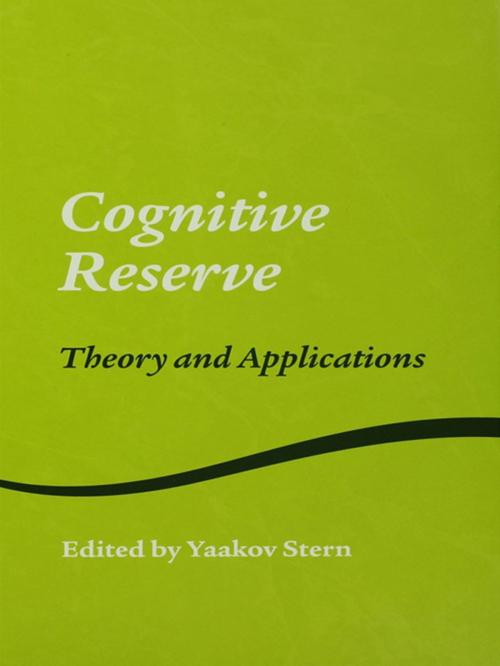Cognitive Reserve
Theory and Applications
Nonfiction, Health & Well Being, Psychology, Neuropsychology, Cognitive Psychology| Author: | ISBN: | 9781134954452 | |
| Publisher: | Taylor and Francis | Publication: | May 13, 2013 |
| Imprint: | Psychology Press | Language: | English |
| Author: | |
| ISBN: | 9781134954452 |
| Publisher: | Taylor and Francis |
| Publication: | May 13, 2013 |
| Imprint: | Psychology Press |
| Language: | English |
Cognitive reserve has emerged as a powerful concept for interpreting individual differences in susceptibility to, and recovery from, brain injury or pathology. Underlying cognitive reserve is the idea that individual differences in how cognitive tasks are mediated in the brain allow some people to cope with pathology to a greater degree than others. Cognitive Reserve: Theory and Applications describes in depth the source of these individual differences.
This volume provides a comprehensive review of theory, research and clinical application of the cognitive reserve. Chapters explore the theoretical underpinnings of cognitive reserve, and evidence for its existence. Various approaches for studying this concept are addressed, including epidemiologic, cognitive experimental, and neuroimaging. Possible genetic and physiologic underpinnings of cognitive reserve are presented. Application of this concept to a wide range of situations, including child development, aging, Alzheimer’s disease, stroke, HIV, and head injury is discussed. The result is an up-to-date, global treatment of cognitive reserve that will be of interest to someone new to the concept or the experienced investigator.
Cognitive reserve has emerged as a powerful concept for interpreting individual differences in susceptibility to, and recovery from, brain injury or pathology. Underlying cognitive reserve is the idea that individual differences in how cognitive tasks are mediated in the brain allow some people to cope with pathology to a greater degree than others. Cognitive Reserve: Theory and Applications describes in depth the source of these individual differences.
This volume provides a comprehensive review of theory, research and clinical application of the cognitive reserve. Chapters explore the theoretical underpinnings of cognitive reserve, and evidence for its existence. Various approaches for studying this concept are addressed, including epidemiologic, cognitive experimental, and neuroimaging. Possible genetic and physiologic underpinnings of cognitive reserve are presented. Application of this concept to a wide range of situations, including child development, aging, Alzheimer’s disease, stroke, HIV, and head injury is discussed. The result is an up-to-date, global treatment of cognitive reserve that will be of interest to someone new to the concept or the experienced investigator.















